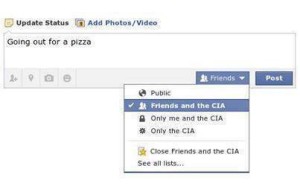The National Security Agency was acquiring thousands of digital communications from Americans as of 2011, according to a declassified document from the Foreign Intelligence Surveillance Court.

The glimpse of the NSA’s surveillance on people in the U.S. was revealed Wednesday in an 86-page court assessment of the constitutionality of agency’s data collection methods. It was released by the Office of the Director of National Intelligence.
The 2011 assessment was based on NSA’s own review of what the document refers to as “a statistically representative sample” drawn from the intelligence agency’s collection of upstream data. “Upstream data” refers to Internet communications, such as email, as they transit, rather than to acquisitions directly from Internet service providers, the court document said.
The review revealed that NSA acquired roughly 2,000 to 10,000 “multi-communication transactions,” or MCTs, each year that contain at least one wholly domestic communication. An MCT refers to the capture of multiple different communications at once, such as emails within a single webmail service, one staff member at the Electronic Frontier Foundation said. EFF has been fighting for the federal court to release the review for over a year.
The document also said that the NSA had been acquiring more than 250 million Internet communications in total each year.
The numbers help to shed new light on the scope of government surveillance into people’s online communications in the name of national security.
Kurt Opsahl, senior staff attorney with the Electronic Frontier Foundation, called the figures “very significant.”
“It shows that the NSA was misusing its authority for years and scanning the content of communications to do so,” he said in an email.
The review also revealed a deception. Until NSA’s manual review, “the government asserted that NSA had never found a wholly domestic communication in its upstream collection,” the court opinion said.
The court expressed reservations throughout the document over the constitutionality of the NSA’s data collection methods. Specifically, the procedures that the NSA used to target and minimize its data collection efforts among only foreigners who are of interest to national security issues “are inconsistent with the requirements of the Fourth Amendment,” the document said.
The court also lamented a lack of information about the NSA’s methods in its review. “The practical implications of NSA’s acquisition of Internet transactions through its upstream collection for the Court’s statutory and Fourth Amendment analyses are difficult to assess,” the document said.
The document was released in response to a Freedom of Information Act lawsuit from the Electronic Frontier Foundation. The digital rights group called its release a victory, partly because it will help to encourage a public debate on the issue of government surveillance.
“Disclosing this opinion — and releasing enough of it so that citizens and advocates can intelligently debate the constitutional violation that occurred — is a critical step in ensuring that an informed debate takes place,” EFF staff attorney Mark Rumold said in a statement.
The document’s release comes just weeks after President Obama announced some sweeping reforms designed to limit data collection by the NSA under the Patriot Act.
Much of the issue of government surveillance has been pushed into the public consciousness following leaks made by former NSA contractor Edward Snowden.





